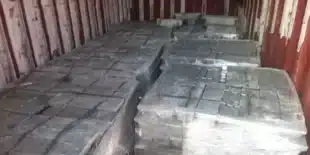Last week, Israel provided the U.S. with a document outlining its conditions for a diplomatic solution to end the conflict in Lebanon and facilitate the return of displaced civilians on both sides of the border, according to two U.S. and two Israeli officials who spoke to Axios.
Israeli officials said the Prime Minister’s Office shared the document with the White House ahead of President Joe Biden’s envoy, Amos Hochstein, traveling to Beirut on Monday to discuss a diplomatic resolution. The document was sent to Hochstein by Israeli Minister for Strategic Affairs Ron Dermer, a close advisor to Prime Minister Benjamin Netanyahu, after consultations with Israel’s Ministry of Defense and the military.
Among Israel’s key demands is the right for its army to carry out “active enforcement” to ensure that Hezbollah cannot rearm or rebuild its military infrastructure near the southern Lebanese border. Another demand is that Israel’s air force retains freedom of operation in Lebanese airspace.
These demands, however, conflict with U.N. Security Council Resolution 1701, which stipulates that the Lebanese Armed Forces (LAF) and the U.N. Interim Force in Lebanon (UNIFIL) should enforce the ceasefire between Israel and Hezbollah. An Israeli official noted, “We are talking about 1701 with increased enforcement. Our message is that if the Lebanese army and UNIFIL do more, the Israeli army will do less, and vice versa.”
A U.S. official commented that it is unlikely Lebanon or the international community would accept these terms, as they would severely undermine Lebanon’s sovereignty.
Upon arriving in Beirut on Monday, Hochstein met with acting Prime Minister Najib Mikati, Parliament Speaker Nabih Berri, and other Lebanese leaders to discuss Israel’s conditions. Berri had earlier told Al-Arabiya that Hochstein’s visit represented “the last chance before the U.S. elections to reach a solution” to the conflict in Lebanon. He emphasized Lebanon’s consensus on adhering to U.N. Resolution 1701 and rejected any amendments, which is what Israel is reportedly demanding.
Hochstein is advocating for the Lebanese army to deploy a significant force—at least 8,000 troops—across southern Lebanon as part of a comprehensive diplomatic solution to the war. In recent years, the Lebanese army’s presence in this region has been limited. Additionally, Hochstein aims to strengthen UNIFIL’s mandate, enabling it to assist the Lebanese army in preventing armed groups not controlled by the Lebanese government from operating near the Israeli border.
U.S. officials pointed out that, since the 2006 war, UNIFIL has struggled to enforce Resolution 1701 effectively, allowing Hezbollah to build extensive military infrastructure in southern Lebanon in violation of the resolution.


